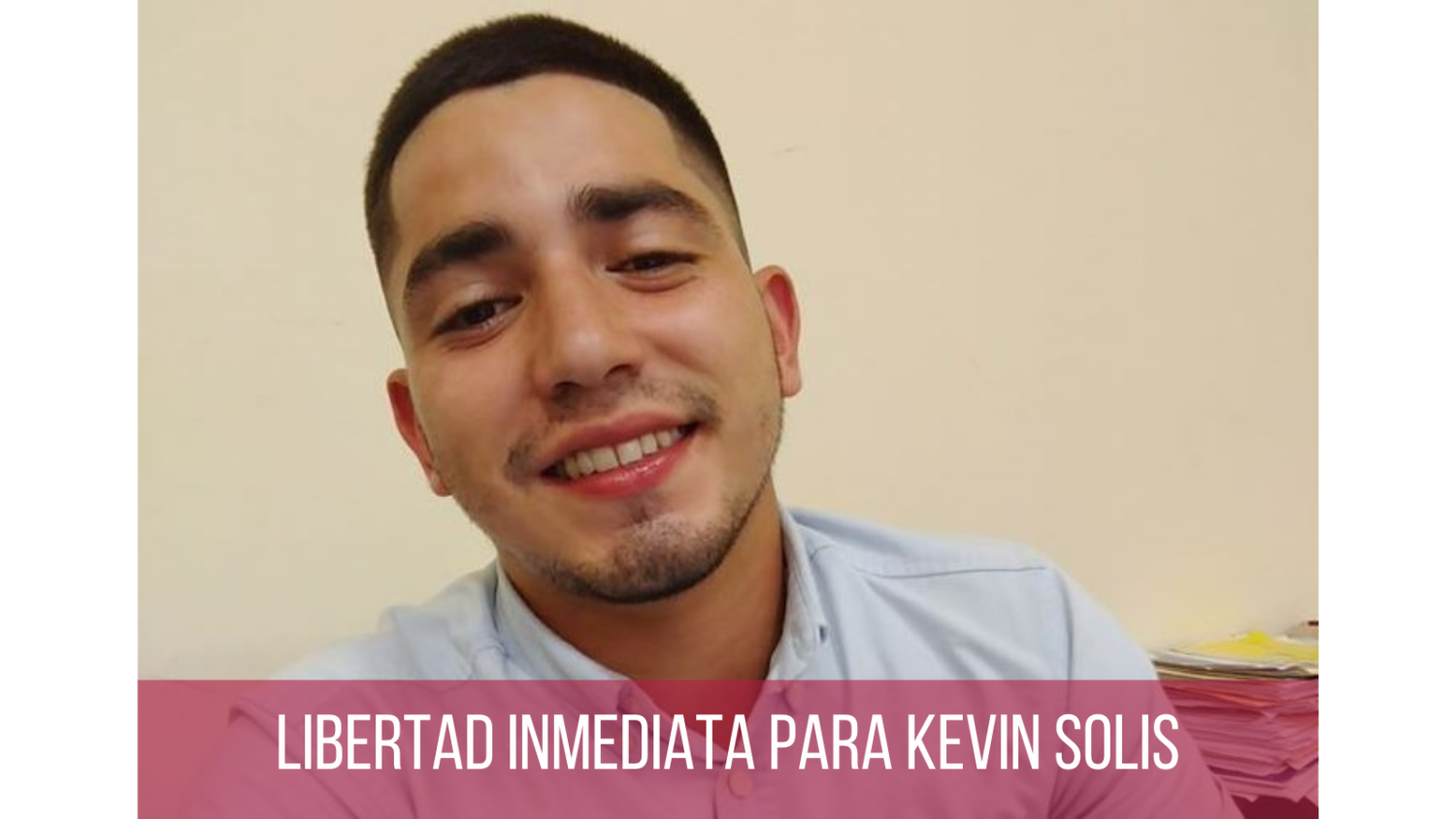UN Working Group on Arbitrary Detention requests immediate release of Nicaraguan student Kevin Solis
Washington D.C. – October 20th, 2020. The United Nations Working Group on Arbitrary Detention (WGAD) released an opinion this month regarding the arrest of university student and activist Kevin Solís on […]

Washington D.C. – October 20th, 2020. The United Nations Working Group on Arbitrary Detention (WGAD) released an opinion this month regarding the arrest of university student and activist Kevin Solís on February 6, 2020, days after he and dozens of other young people participated in a protest at the Universidad Centroamericana (Central American University; UCA). The opinion concludes that Solís’ detention was arbitrary and calls upon the Government of Nicaragua to take urgent measures to remedy his situation, beginning with granting him freedom immediately.
The opinion was requested by the Nicaraguan Center for Human Rights (CENIDH), the Legal Defense Unit (UDJ), and the International Institute on Race, Equality and Human Rights (Race and Equality). Although the WGAD requested that the Government of Nicaragua respond to the organizations’ complaint by providing information on the case, the Government did not respond to the request.
Solís is currently being held in the Jorge Navarro Correctional Center, serving a 4 and a half-year sentence for supposed theft.
The WGAD noted that this is not the first case reported to them alleging arbitrary detention against an opponent of the Nicaraguan Government and that since 2018, the WGAD has received increasing numbers of complaints about the arrests of protesters.
Arbitrary detention
According to the WGAD, Solís’ detention fell into categories I, II and III of the Group’s definition of arbitrary detention. Firstly, Solís was not caught in flagrante delicto, but the arrest was carried out by individuals in civilian clothes who did not show an arrest warrant issued by a competent authority. From 11:00am until 6:00pm on the day of his arrest, Solís suffered forced disappearance, during which his right to personal safety was flagrantly violated. Secondly, Solís’ detention came as a consequence of his exercising his freedom of opinion and expression, freedom of peaceful assembly and association, and freedom to participate in public affairs. Finally, the guarantees of a fair trial were violated throughout Solís’ judicial process.
The Working Group’s requests
The WGAD judged that, in the context of the pandemic of COVID-19, the Government of Nicaragua should “take urgent measures to guarantee (Solís) immediate freedom” and grant him the right to reparations. Additionally, the Group recommended that the proper authorities examine whether Law 952, which establishes that all cases of aggravated robbery must be processed in preventive detention, is compatible with the International Covenant on Civil and Political Rights, which holds that pre-trial detention should be an exceptional measure rather than the norm.
Finally, the WGAD let it be known that Solís’ case has been referred to the Special Rapporteur on Torture to take further steps and requested that both the petitioners and the Government offer follow-up information on the case within 6 months.

